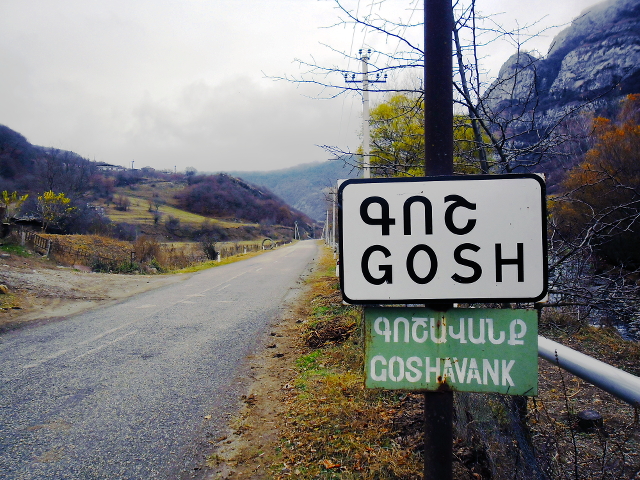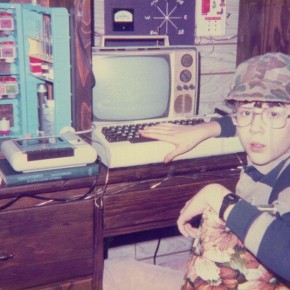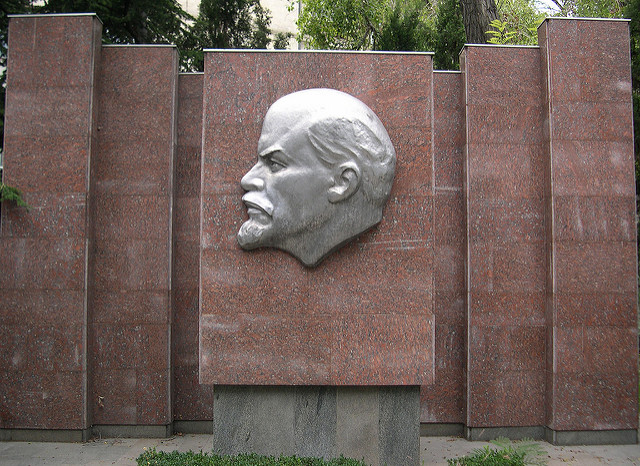The tourist season had long since left Gosh. It packed its souvenirs and memories and returned to Yerevan, squeezed into a vacuum-packed minibus. At least that’s how I got here. Gosh, a village of just over one thousand people, at the end of a small valley in Armenia’s heavily wooded Tavush Province, is known for its twelfth century monastery of Goshavank, burial place of the founder, monastic scholar Mkhitar Gosh. Known as Nor Getik, the monastery and surrounding settlement was renamed in his honour after his death in 1213. Gosh. There’s a pattern here, in response to which I issue a trigger warning for abysmal puns on the village’s name.
It was raining in Gosh; the forest paths to peaceful Lake Gosh in the mountains are not advisable in such weather. Two Russian tourists, mother and daughter, decided not to risk it (their expensive new boots might get wet,) and sat despondently in Hotel Gosh prodding at their late lunch. The Hotel reception doubles as a village shop in the autumn and winter months, from which one can dive into boxes of biscuits, bottles of shampoo, and all manner of necessities while admiring the magnificent monastery of Goshavank through the drizzle. Gosh experiences that particularly British ‘”fuck you” sort of weather. The heavens open and a humid, cloying mist seeps into the soul – smug, evasive, and intangible. I was almost homesick.
That was how I came to meet the former – recently deposed – Mayor of Gosh. Fiftysomething Hovsep leaned over the bar, his elbow resting in a tray of the village shop’s biscuits (chocolate, two hundred dram,) his face illuminated by the television’s glare. Hovsep glared back, puzzled. The news was like that. The anniversary of Kristallnacht, a typhoon in the Philippines, and the Day of the Skulls festival in Bolivia. We made small talk.
“Six million of them, it’s unbelievable… why did Hitler kill the Jews?”
I wasn’t quite sure.
“Perhaps because they refused to finance the war?”
“Many were killed. Jews, Roma, Communists, pacifists, the disabled, homeless, drug addicts…”
“Listen,” (I did) “you or I could lose the roof over our heads, you or I could lose our minds. But to be a drug addict? Narkotika? That’s a crime. An addict is worse than an animal.”
La Paz flickered into life on the television screen. A beaming Bolivian cradled a skull in her arms. The interviewer waved a microphone at her, and an explanation followed in Spanish, dubbed into Russian. The skull grinned, its first time on the big screen, and lost for words.
“The Jews were a clever people.”

The past tense confused me. There was some subterranean meaning to it, or perhaps a slip of the tongue. I had become very uncomfortable, and not entirely because of the bar stool.
I remembered a toast at a khorovats gathering with colleagues outside Yerevan. “Armenians love when they are loved.”
“So are the Armenians.”
Chess grandmasters, the genius of Mashtots, a well-worn list of my favourite, eminent –yans. I’d done this before, with a smile, a few choice phrases with an awful accent. Better still, I meant it. The Mayor of Gosh laughed at me.
“Clever? Armenians aren’t clever! The country is emigrating. The price of vegetables even increases every year, and what’s being done about it? When Saakashvili came to power, he rounded up all the thieves, all the cheats, and told them to leave the country or go to jail. Let’s have that happen here. People always say Armenians are clever, but where’s the wisdom here? Where?”

We walked out onto the porch, and to the monastery of Goshavank in the rain. In search of wisdom, perhaps. A new statue of Mkhitar Gosh sits at the monastery’s entrance. His legal code formed the basis of canon and civil law in Bagratid and Cilician Armenia, and as far as afield as Poland and Lithuania. Mkhitar Gosh, their giver of law (‘though not order,” remarked one villager.) From the depths of Goshavank, a priest, recently arrived from Dilijan, sang and laughed with all his might. These walls were built to echo. Some generous soul had left him a few thousand Uzbek Som in the donations box, and one worn out US dollar.
The granite writhed in the monastery walls. By the Chapel of St. Gregory stands one of the finest examples of an Armenian Khachkar in the country. They call it aseghnagorts, the needle-carved. When in Yerevan, I sometimes take a detour past a Khachkar carver’s workshop on Arami Street. It’s a mesmerising process to watch, though my Armenian friends tut under the whine of the electric power tools. “It’s just not the same.”
“Goshavank saves us,” sighed Hovsep, crossing himself. “It’s why we’ve all stayed here.”
It seemed, nevertheless, a secular remark.
Returning to the village square, two mud-encrusted Russian tourists crossed our path. They had seen three Khachkars on the crest of a nearby hill, but had never reached them. Ominous and anonymous, they stood just out of reach – at least, until summer. They might meet the occasional bear, though there was nothing to fear, at least, not for them. “Unlike us, bears don’t kill for pleasure.”
We left Gosh to its devices, literary and otherwise, and the monastery receded behind us. A sign, “Gosh,” in Latin and Armenian scripts, with a red slash across it, marked the end of the village. Gosh was no more. According to Hovsep (and it seems, only Hovsep), the word Gosh had referred to an open palm in the Armenian vernacular of Mkhitar Gosh’s lifetime. Gosh had meant kindness, as Mkhitar gave his bread to the hungry and grain to the poor.
At a garage on the road to Dilijan we stood in silence as the jeep’s natural gas canister was refilled, drinking instant coffee in the rain.
“You know, Maxim-jan, I’m not a nationalist. Some people want to return all Western Armenia to us, but what good would that do? We’d move to Karin (Erzurum) or Van, find no work there, and then end up in Rostov. I want to stay here, in Dilijan or in Gosh.”
“…and there are more than ten million Kurds in Western Armenia, and less than three million of us. Armenia would become Kurdistan overnight. (That, of course, would never do.)”
Hovsep had business in Dilijan, and we parted at the town’s bus station.
“We didn’t say anything,” wrote William Saroyan, “because there was such an awful lot to say, and no language to say it in.” As the former Mayor of Gosh drove away, I found myself lost for words. In particular, for exclamations.
Photographs courtesy of the author.





